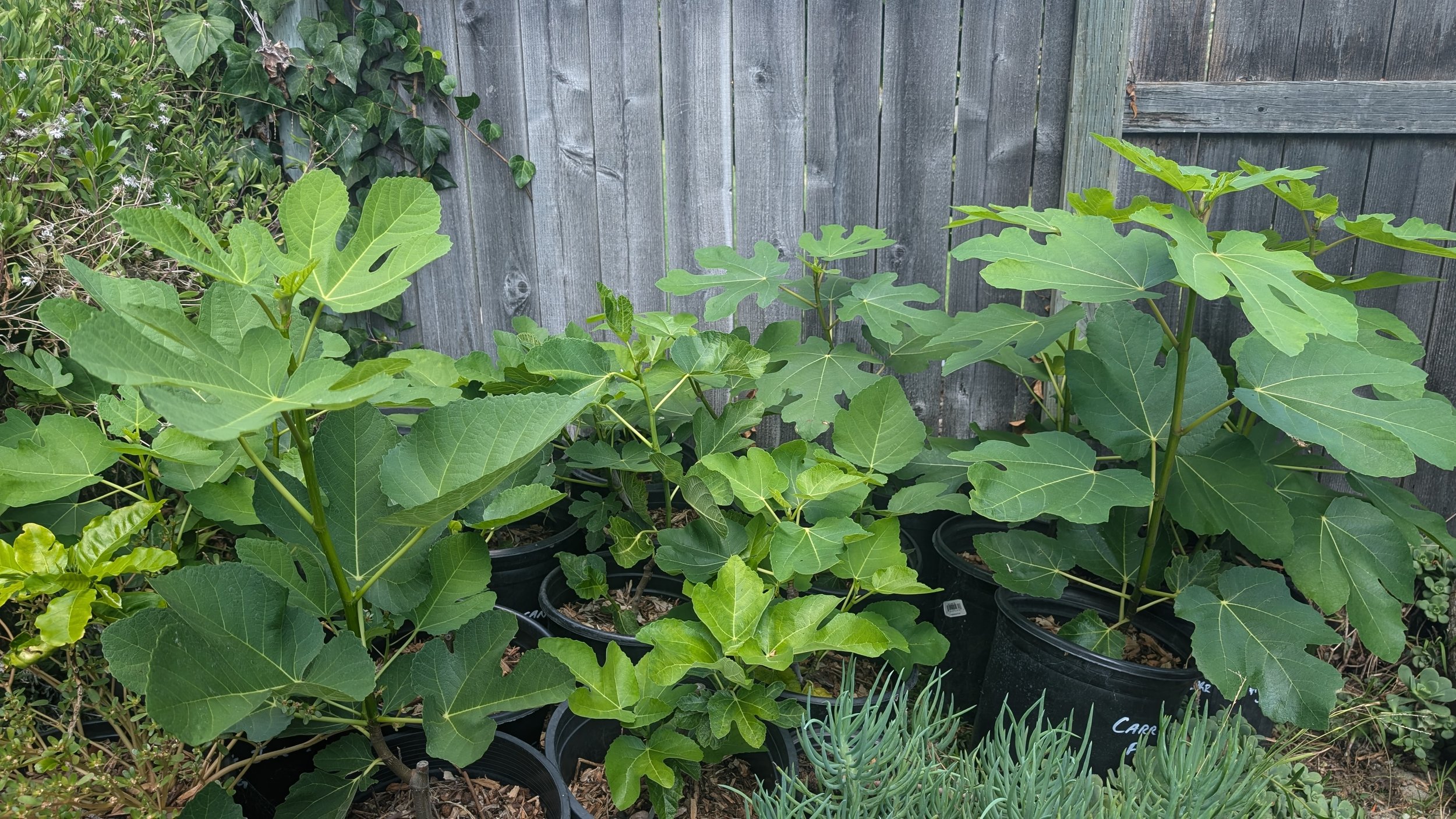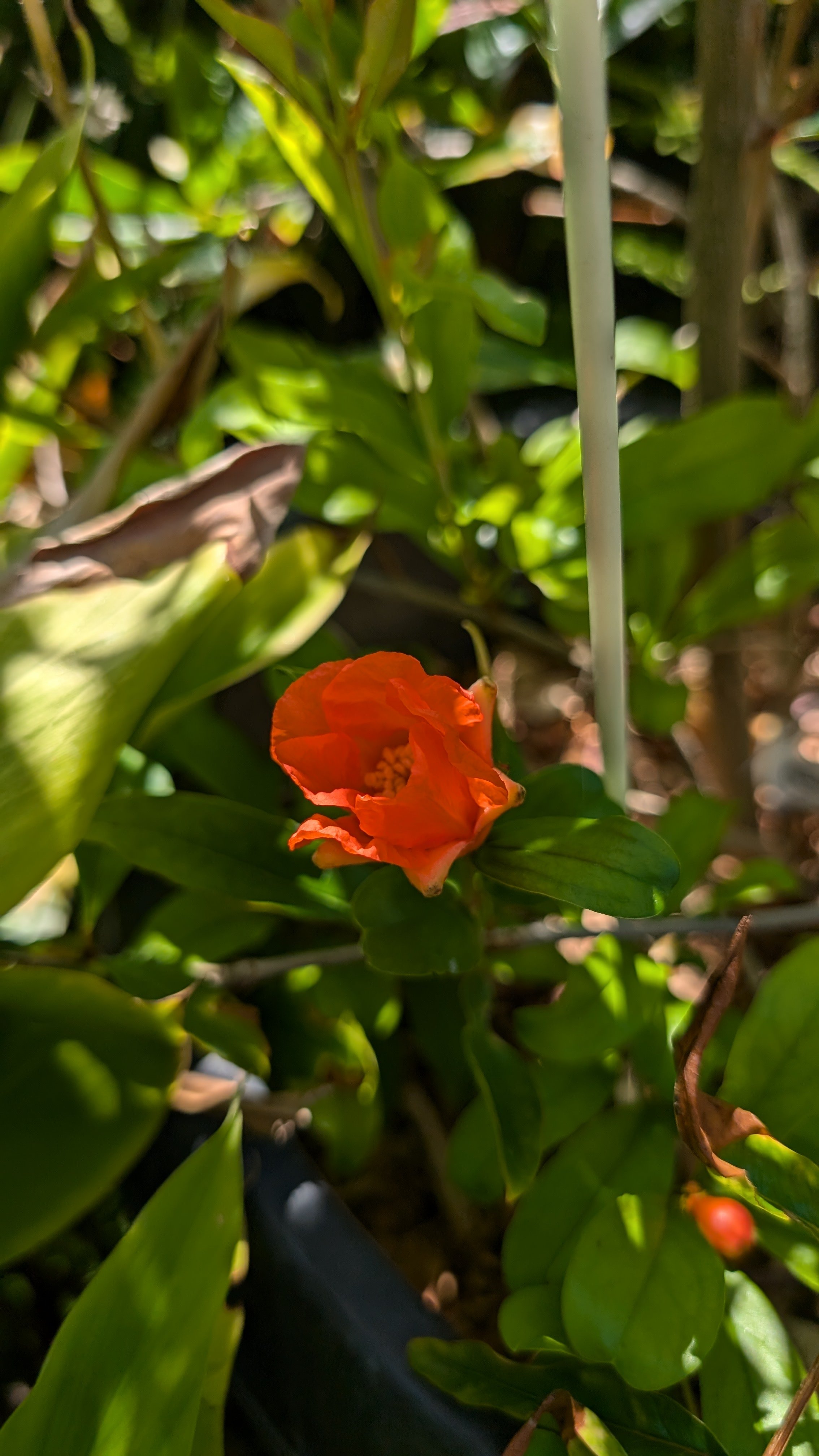'Sweet' Pomegranate - 15 Gallon
Punica granatum x Sweet is a delightful and refreshing fruit that has a pink-red color and a sweet and mild flavor. The fruit has a thin and soft skin and a tender and juicy pulp. The fruit is rich in vitamin C, potassium, and antioxidants. More a large shrub than a tree, with multiple trunks reaching a height of 15 to 20 feet, pomegranates are adapted to regions with cool winters and hot summers. Beautiful shiny foliage and a long flowering season make them attractive additions to coastal, inland valley and desert landscapes. Pomegranates tolerate a wide range of soil types, but prefer deep, well-drained loams. The plant is self-pollinated and does not require cross-pollination.
Punica granatum x Sweet is a delightful and refreshing fruit that has a pink-red color and a sweet and mild flavor. The fruit has a thin and soft skin and a tender and juicy pulp. The fruit is rich in vitamin C, potassium, and antioxidants. More a large shrub than a tree, with multiple trunks reaching a height of 15 to 20 feet, pomegranates are adapted to regions with cool winters and hot summers. Beautiful shiny foliage and a long flowering season make them attractive additions to coastal, inland valley and desert landscapes. Pomegranates tolerate a wide range of soil types, but prefer deep, well-drained loams. The plant is self-pollinated and does not require cross-pollination.



Punica granatum x Sweet is a delightful and refreshing fruit that has a pink-red color and a sweet and mild flavor. The fruit has a thin and soft skin and a tender and juicy pulp. The fruit is rich in vitamin C, potassium, and antioxidants. More a large shrub than a tree, with multiple trunks reaching a height of 15 to 20 feet, pomegranates are adapted to regions with cool winters and hot summers. Beautiful shiny foliage and a long flowering season make them attractive additions to coastal, inland valley and desert landscapes. Pomegranates tolerate a wide range of soil types, but prefer deep, well-drained loams. The plant is self-pollinated and does not require cross-pollination.



